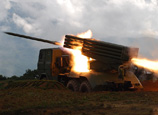
COUNTRIES could increase the productivity of infrastructure investment to make savings of 40 percent, or US$1 trillion a year, by adopting proven best practices, McKinsey Global Institute said yesterday.
MGI estimated the world needs to spend US$57 trillion on infrastructure - the sinews of an economy - between now and 2030 simply to keep up with projected growth. That is nearly 60 percent more than the US$36 trillion spent over the past 18 years.
Yet government budgets are tight and banks wary of lending, so wringing more out of each dollar of investment is imperative to sustain growth, jobs and development, MGI, the research arm of consultancy McKinsey & Co, said in a report.
MGI estimated that extending the best practices it identified in 400 projects worldwide could lead to a 60 percent productivity improvement. In the United States, Japan and Germany, for example, construction workers have not raised their productivity in the past 20 years.
"Countries could deliver US$48 trillion of infrastructure for only US$30 trillion in investment and reinvest the savings," the report said.
Those savings would come from three main sources: selecting projects more systematically and delivering them more efficiently; making the most of existing airports, roads and ports; and managing demand by using tools such as road pricing and water metering.
"The practices that would yield this US$1 trillion a year are already in place. We are not looking into the future to see what new technology might bring," Herbert Pohl, one of the report's authors said.
MGI cited South Korea, Ontario and Singapore as having model infrastructure organizations that others can emulate, while Switzerland shows how to develop a joined-up national strategy.
It commended Seoul and Stockholm for the integrated approach they took to easing clogged traffic and said Denmark had cut its road maintenance bills by 20 percent.
By contrast, road congestion costs the US around US$101 billion a year in time and fuel. Trucks entering the US from Mexico still have to wait for up to two hours at the border.
"Until sound infrastructure systems are in place, countries will continue to fund the wrong projects, place priorities in the wrong areas, and fail to meet the needs of their people," the report said.
















 Railway staff members express Spring Festival greetings
Railway staff members express Spring Festival greetings


![]()
